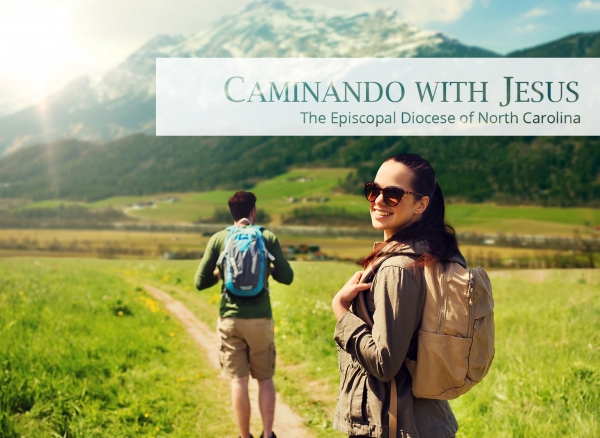CAMINANDO WITH JESUS: Plant the Seeds of Love

Jesus went out of the house and sat beside the sea. Such great crowds gathered around him that he got into a boat and sat there, while the whole crowd stood on the beach. And he told them many things in parables, saying: “Listen! A sower went out to sow. And as he sowed, some seeds fell on the path, and the birds came and ate them up. Other seeds fell on rocky ground, where they did not have much soil, and they sprang up quickly, since they had no depth of soil. But when the sun rose, they were scorched; and since they had no root, they withered away. Other seeds fell among thorns, and the thorns grew up and choked them. Other seeds fell on good soil and brought forth grain, some a hundredfold, some sixty, some thirty. Let anyone with ears listen!”
“Hear then the parable of the sower. When anyone hears the word of the kingdom and does not understand it, the evil one comes and snatches away what is sown in the heart; this is what was sown on the path. As for what was sown on rocky ground, this is the one who hears the word and immediately receives it with joy; yet such a person has no root, but endures only for a while, and when trouble or persecution arises on account of the word, that person immediately falls away. As for what was sown among thorns, this is the one who hears the word, but the cares of the world and the lure of wealth choke the word, and it yields nothing. But as for what was sown on good soil, this is the one who hears the word and understands it, who indeed bears fruit and yields, in one case a hundredfold, in another sixty, and in another thirty.”
- Matthew 13:1-9,18-23
A few short weeks ago, our challenge with COVID-19 began to share the road of our cultural focus when George Floyd tragically died while being arrested. The public outcry was--and is--powerful, and millions of people are calling for changes in methods of policing, protection of the marginalized and who we revere on a pedestal in the center of town.
Many in our community continue to feel that this change goes too far. They say that the goal of Black Lives Matter takes away from the “rest of us,” that instead we should focus on “All Lives Matter,” as we are all children of God. Still others feel this change takes away from their heritage and that removing symbols of the South will take away the history and culture of the community they adore.
Yet millions of people across our nation have heard the importance of this call to action and change. Crowds gather in communities big and small, crying out for equality and change in a world that refused to give up power to those who have none. White people have begun discussing the necessity of changing their perspectives and actions in order to better understand and respect people of color.
Still, it can be difficult to let go of the “what about us?” perspective. When a marginalized group calls out, it may be natural for us to want to say, “Sorry, but your cause isn’t important enough to me to make a change in my life to give room for you.” It’s far easier to say, “Yes, I think you are important, but not enough to take the time and effort to help your cause.” It’s also easy to say, “My view of history is correct, and, despite what you may know to be true, my ancestors built this understanding of history, so it’s more comfortable for me to keep thinking I am right than to consider the possibility that what I have been taught was wrong.”
In order for our society to be well-nourished, it is important for us to plant the seeds of love in strong, healthy soil, free from the weeds of apathy and disdain, and in soil that is deeper than shallow dust and rock. For Christ’s love to grow in the world, we must be wise enough to see that it is important for us to distinguish the good soil from what is filled with dust, rock and weed. Often, a farmer must allow for the possibility they need to improve the soil or to work on healthier fields.
That change may start with a recognition history has not been correctly expressed in our education. It may mean we rethink how conflicts are resolved, from the initial contact of our civil servants to the way those who are incarcerated are treated. It may mean monuments to people who did not share in the ideals of our whole community should not be left to stand. Nevertheless, it means the majority must do hard, introspective work not only to understand, but also to strive for justice and peace among all people, and to respect the dignity of every human being.
In a world that has racism, it is not enough that we be non-racist; rather, we must be anti-racist.
We are in a place where all of God’s children must stand together, either physically or virtually, holding up a banner of love, understanding and grace for all--but specifically focused on those who are the placed in the margins.
The Rev. Rick Sigler is the deacon at St. Mary's House, Greensboro.
Tags: Caminando with Jesus
